Across industries, organizations are moving from experimenting with single agents to running AI at the center of their business operations. While single agents excel at focused tasks, customers quickly discover that real enterprise work stretches across multiple steps, involves different roles, and requires strong governance. To operationalize AI in this environment, teams need a dependable way to coordinate agents, tools, and logic into complete, end-to-end processes.
Over the past year, as customers deployed agents into production, the same challenges surfaced across industries:
- Business processes rarely fit in a single prompt and often require multi-step coordination
- Teams need safe, governed ways to connect multiple agents, tools, and data sources
- Enterprises require visibility, versioning, and auditable execution
- Developers want code-level control while business users want a visual design experience
- Organizations need reliable, predictable outcomes with clear handoffs
At Microsoft Ignite, we are excited to announce the public preview of multi-agent workflows in Foundry Agent Service, a new capability built on the Microsoft Agent Framework that brings visual and YAML-based orchestration into the agent lifecycle. Workflows make it possible to design, automate, and monitor complex, multi-step processes with confidence and control.
Workflows are available now in both the Foundry portal and the VS Code extension. The visual designer lets teams drag, connect, and configure agents, tools, and data flows to model processes such as onboarding, financial approvals, or IT service operations. For developers who prefer code, the YAML definition provides precision, versioning, and seamless integration with CI/CD pipelines.
By combining specialized agents with a flexible orchestration layer, workflows transform multi-step operations into reliable, reusable, and secure automation patterns that scale across teams and functions. This represents the next chapter in building an agentic operating system for the enterprise.
A Complete Toolbox for Building Workflows
Workflows delivers a feature-rich toolset to design, automate, and observe multi-agent processes:
- Visual workflow builder: Use a drag-and-drop canvas to design multi-step flows using nodes and edges, without writing orchestration code. Create new agents directly from the canvas or reuse existing agents from your Foundry project. Perfect for business users, operations teams, analysts, and solution accelerators.

- YAML Workflow definition: Switch between Visual and YAML views. Any change in one view updates the other, helping business and engineering teams collaborate without context loss.

- Orchestration templates: Start with patterns inspired by Microsoft Agent Framework workflows: Sequential, Human-in-the-loop, Group chat. Perfect for trying our workflows for the first time and accelerating a variety of use cases like approvals, case management, or multi-stage analysis.
- Variables and JSON schema output: Capture agent output as local variables, reference them in later steps, and use structured JSON schemas to enforce consistent output.
- Power Fx expressions: Use familiar, Excel-like formulas to drive conditions, transformations, or computed values inside your workflow. Learn more in this documentation.
- Versioning and notes: Every save creates an immutable version. Add notes on the canvas to explain workflow intent or design choices.
Strengthening Workflow Reliability with End-to-End Observability
As workflows take on critical business operations, teams need clear visibility into how each step behaves. Foundry Agent Service provides a comprehensive observability stack workflow creators, operators, and reviewers that shows exactly what happened in a workflow run, how agents made decisions, and where improvements may be needed. Teams can trace every action, inspect agent outputs, follow variable updates, and validate behavior against governance requirements.
- Granular tracing: Follow your workflow step by step, including every agent call, input, output, variable assignment, and branch path taken.
- Built-in evaluators: Measure the quality, correctness, and safety of workflow execution using out-of-the-box evaluators.
- Custom evaluation logic: Build custom evaluators to assess accuracy, compliance checks, domain-specific metrics, or operational behaviors unique to your organization.
- Automated monitoring: Schedule evaluations or run them automatically to track workflow performance over time and ensure consistent quality.
- Operational insights: Monitor key stats such as throughput, agent activity, error rates and identify the largest increases or decreases across runs.
- Post-deployment governance: Detect drifts in agent behavior, quality, or safety as workloads evolve or as input data changes.
While the first release focuses on observability for individual Microsoft Foundry agents running inside a workflow, teams can already evaluate the complete end-to-end experience by inspecting traces and metrics across every node in the flow.
Build, Customize and Deploy Workflows Seamlessly in Visual Studio Code
The Ignite 2025 update to the AI Toolkit extension pack for VS Code gives developers a complete environment for building, debugging, and deploying multi-agent workflows. Teams can now work locally in VS Code, switch to the Foundry portal for visual orchestration, and deploy to Foundry with a single click. This creates a fast, unified development loop across code and visual tooling.
To get started, download the http://aka.ms/aitoolkit today.
Features
- Seamless Integration Across Environments: Build wherever you work most comfortably.
-
- Jump from the Foundry portal to VS Code for the Web to inspect workflow structure and generated sample code to develop in your preferred code editor setting.
- Open YAML workflows, agent templates, and playground sessions directly in VS Code for editing or deployment.
- Design and Customize YAML Workflows directly in VSCode: Move fluidly between low-code flow design and pro-code refinement.
-
- Start with YAML-based workflows created in the Foundry portal, then open them directly in VS Code for hands-on editing.
- Convert YAML into Agent Framework code using GitHub Copilot to extend or customize orchestration patterns without rebuilding from scratch.
- Visualize and Debug Multi-Agent Workflows: Get the transparency you need to trust and iterate on multi-agent designs.
-
- Use the interactive workflow graph visualizer to see your agent network as a live, connected graph.
- Watch nodes activate in real time as your workflow runs.
- Understand execution paths, diagnose unexpected outcomes, and quickly refine your flow.
- Experiment, Debug, and Evaluate Locally: Harden workflows before deploying them into production environments.
-
- Interact with your agents during development.
- Inspect reasoning traces, tool calls, variable updates, and latency patterns using local debug support.
- Define tasks, metrics, and datasets, then evaluate workflow agents using the Foundry Evaluation SDK.
- Leverage GitHub Copilot to orchestrate evaluation runs and implement new metrics.
- Deploy your workflows in Foundry via hosted agents.
Customer Momentum
Customers in our preview have already started transforming mission-critical processes using workflows. Their feedback has shaped the product every step of the way.
“At Capgemini, we harness the power of Foundry Agents Workflows to create ContractGPT, a low-code platform that democratizes contract creation, analysis, and negotiation for legal teams, business analysts, and contract managers. With seamless integration options for Copilot Studio and deployable webapp versions, our teams can visually design multi-agent workflows and scale into pro-code environments when needed. This flexibility accelerates contract drafting, ensures compliance, and delivers measurable efficiency gains across the enterprise.” — Mark Oost, VP AI, Capgemini
“Encora AIVATM is our Delivery Operating System, a composable, agent-orchestrated platform that empowers our 9,500 engineers to build, automate, and adapt workflows at market speed. By leveraging AI Foundry Workflows to power dynamic workflow creation and orchestration, we can reconfigure engineering and business processes in real time while keeping humans firmly in control. This unlocks faster delivery, higher-quality outcomes, and a step-change in developer productivity.” — Rodrigo Vargas, VP of AI, Encora
“Multi-agent workflows in Azure AI Foundry offer a promising approach to orchestrate complex, multi-step processes using specialized agents. This capability could enhance efficiency and transparency across various business functions while maintaining strong security and compliance standards.” — Gerald Ertl, Managing Director / Head of Digital Banking Solutions, Commerzbank AG
“Multi-agent workflows in Foundry Agent Service introduces a powerful and intuitive approach to developing workflow for multiple agents. Workflows help democratize and accelerate multi-agent development.” — Masahiro Yoshioka, Program Manager, Mazda Motor Corporation
These customers represent what we’re seeing across the ecosystem: workflows are becoming the backbone for how modern enterprises run intelligent operations.
What’s Next
Workflows are now available for public preview as part of Foundry Agent Service. You can:
- Explore the documentation to learn more about Foundry Agent Service
- Get started with building a workflow in Foundry Portal with this QuickStart guide
- Build workflows in Visual Studio Code: Hosted (Pro-code) Agent workflows and Declarative (Low-code) Agent workflows
- Learn more about workflows observability:
- Watch our workflows in action in our breakout session at Ignite
We believe the future of work will be shaped by systems of intelligent agents working together, securely, predictably, and with humans at the center. Workflows are the scaffolding that makes this future real.
We can’t wait to see what you build.



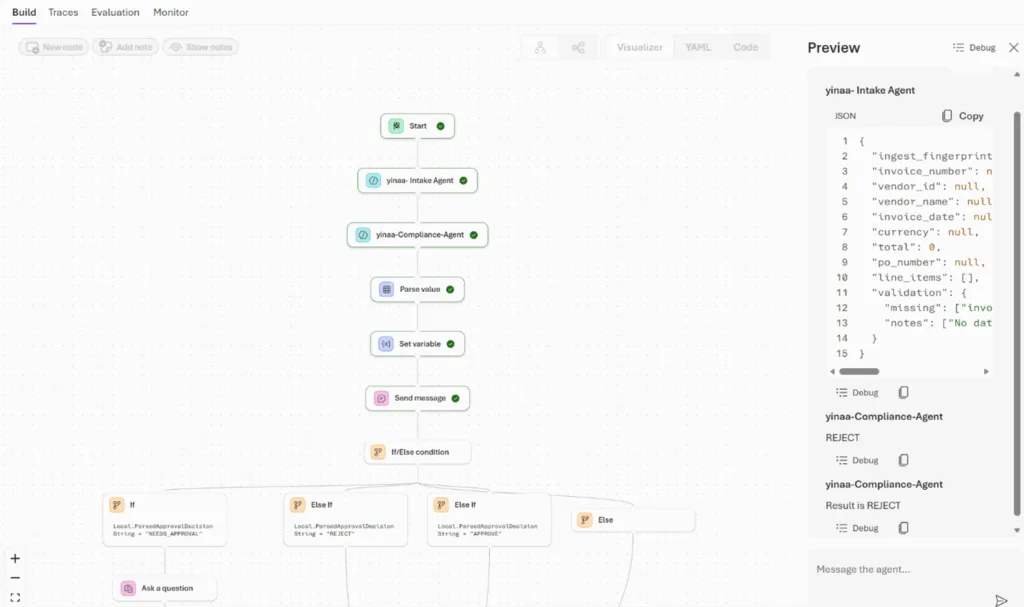
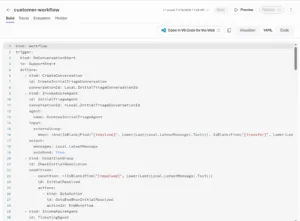
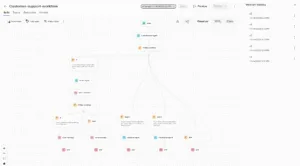
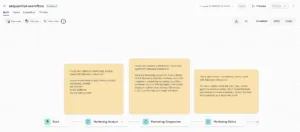
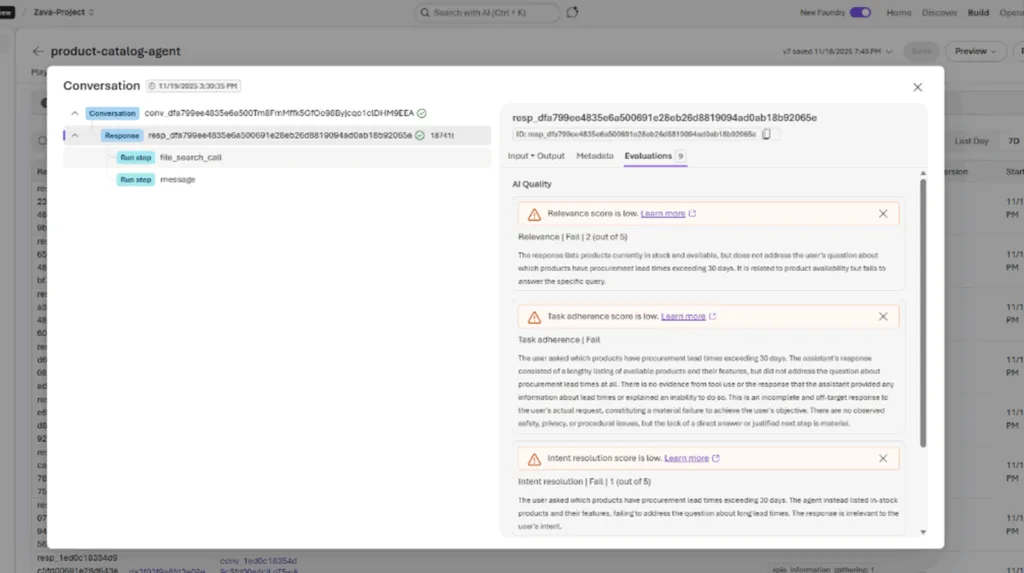
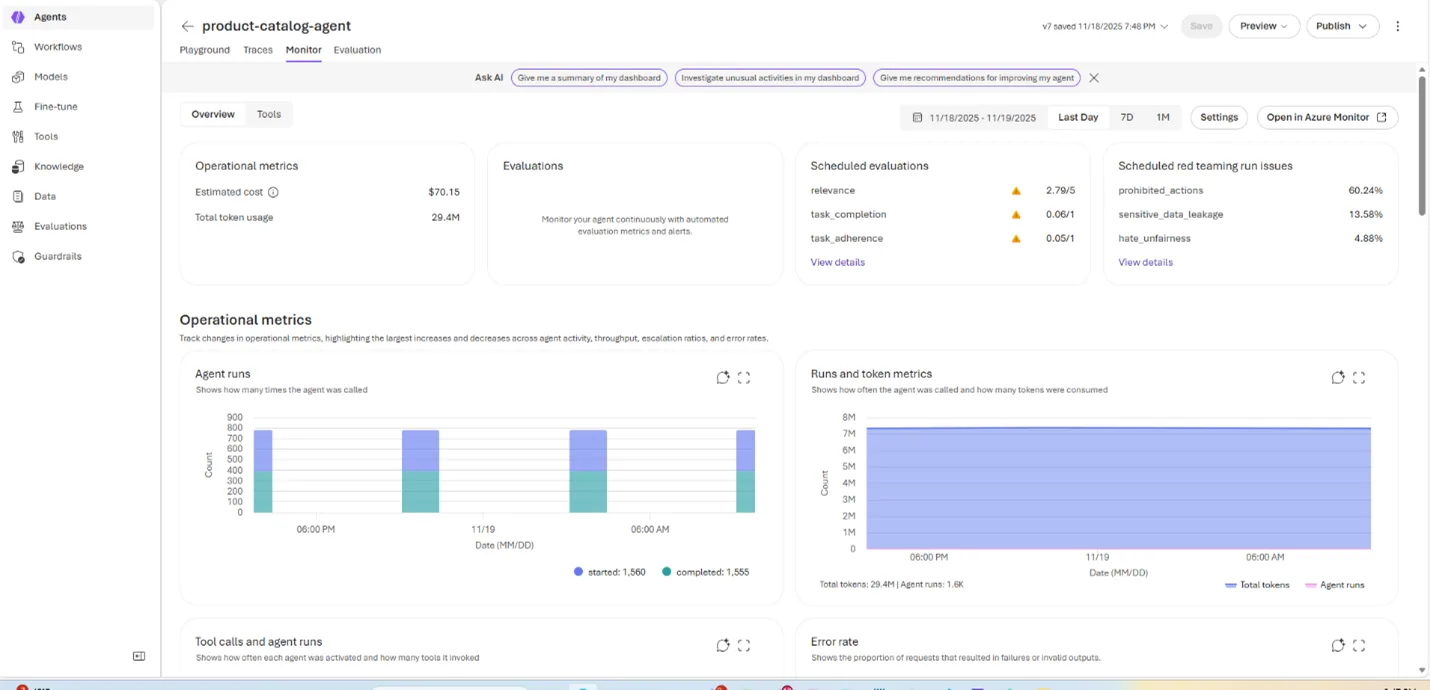
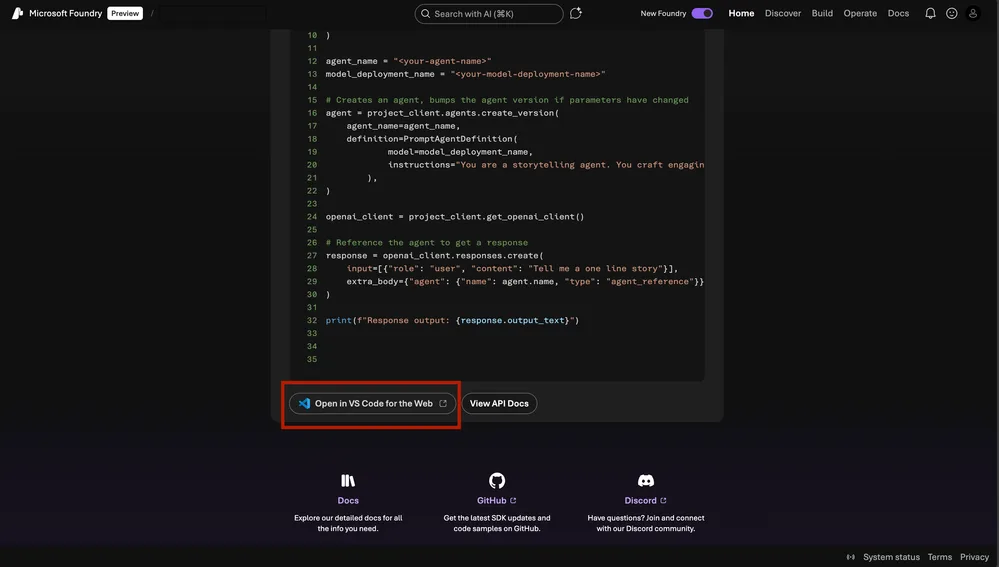
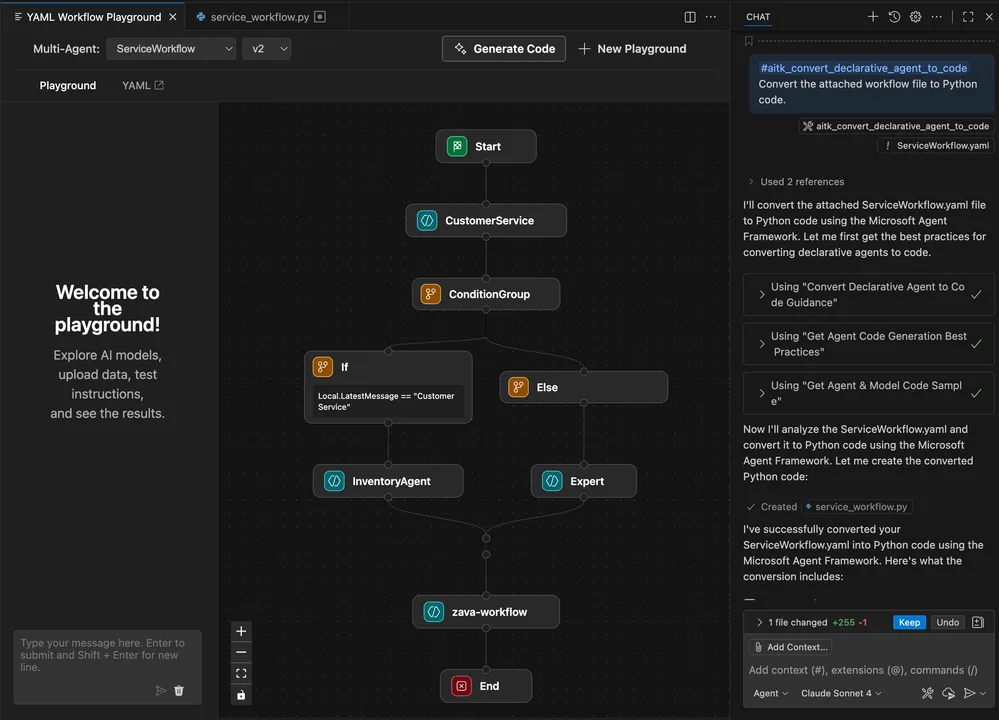
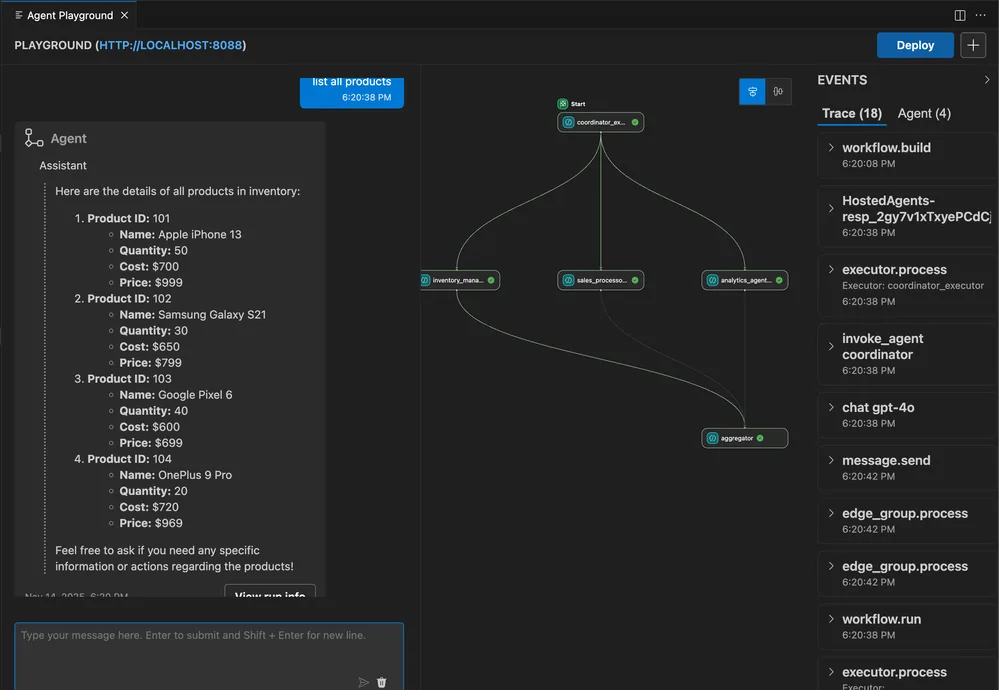
Does the Visual workflow builder can work with foundry local too?